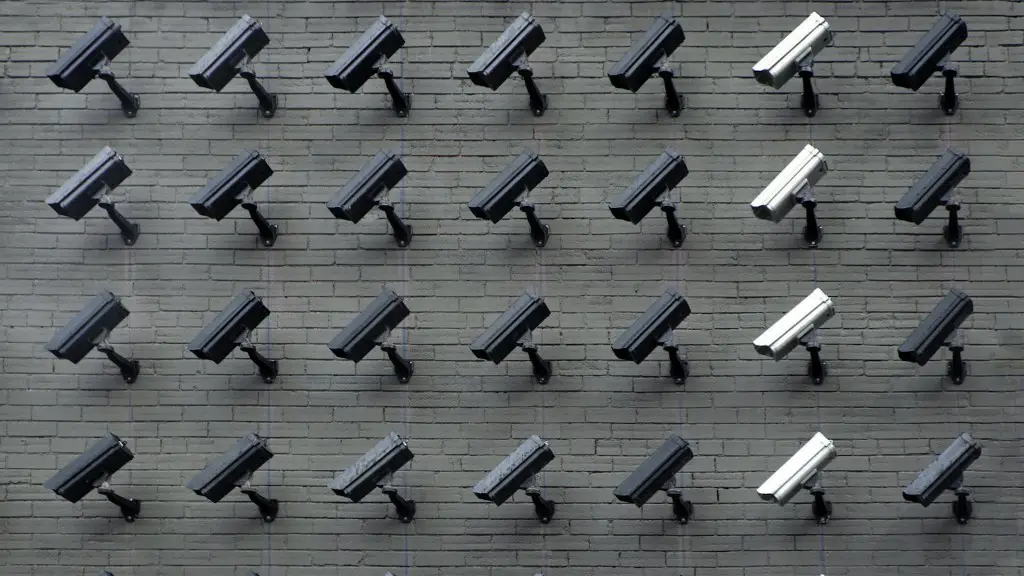What Is The CIA Role In Foreign Policy
The Central Intelligence Agency (CIA) is a powerful government institution that acts as a major actor in U.S. foreign policy. The CIA’s primary purpose is to collect, analyze and disseminate foreign intelligence to assist the American government in the formulation and protection of its foreign policy objectives. The CIA’s influence can be seen in a wide range of activities, ranging from covert operations to diplomatic intelligence gathering and sharing.
The CIA is responsible for assessing the foreign policy implications of decisions taken by other U.S. agencies and for providing policy advice to the President and other domestic and international government entities. Through its clandestine field operations, the CIA is able to employ its resources to gather essential intelligence and provide essential information to inform the formulation of U.S. foreign policy initiatives. The CIA also has a critical role to play in evaluating the intelligence it collects to enable the United States to make informed decisions about foreign policy.
Over the years, the CIA has been found to engage in a variety of activities, often shrouded in secrecy. In recent years, however, the CIA has become more transparent and open to scrutiny. This has enabled it to play a crucial role in helping shape U.S. foreign policy. The agency has been instrumental in providing crucial intelligence to help the American government understand the political, economic, social and military conditions of foreign countries. This intelligence has, in turn, been used to help the U.S. formulate its foreign policy objectives. The CIA has also been involved in a number of covert operations in order to gain access to information that might not be readily available.
The CIA is also responsible for engaging in diplomatic activities that seek to foster diplomatic relationships with foreign countries. In this capacity, the agency often serves as a diplomat between its own government and foreign countries. In some cases, the agency has also been used to provide technical assistance to foreign governments. Through these activities, the CIA has been able to engage with foreign countries without the need for formal diplomatic ties.
The CIA has come under intense criticism for its tactics, especially for its use of coercive interrogation techniques. However, it is clear that the agency is playing an increasingly important role in shaping U.S. foreign policy. The CIA’s ability to access and analyze foreign intelligence has been crucial in helping the U.S. understand the broader global environment and make better foreign policy decisions. It is clear that the agency will continue to be a key player in U.S. foreign policy.
CIA’s Cyber Security Efforts
The Central Intelligence Agency (CIA) is also a major player in the global fight against cyber-crime. Through its cyber security efforts, the CIA is taking steps to protect the U.S. government and the nation’s computer networks. The CIA’s cyber security team is actively working to monitor, detect, and respond to cyber threats. Through its cyber security operations, the CIA has been able to identify numerous cyber threats and take measures to protect the security of U.S. networks.
The CIA also uses its cyber security operations to make sure that foreign governments and organizations are not able to take advantage of U.S. information technology systems or networks. By monitoring and responding to potential threats, the CIA is able to protect U.S. interests and ensure that foreign governments are not using the intelligence capabilities for malicious purposes.
The CIA has also been working to increase its presence in cyberspace. This has included the launch of a dedicated cyber agency, the National Security Agency, in 2009. This agency has been tasked with developing offensive capabilities in order to respond to cyber attacks and defend against potential threats. The CIA has also established the Cyber Task Force to assist other government agencies with implementing cyber security initiatives.
The CIA also plays a key role in educating the public about cyber security. The agency has developed a number of public education campaigns to help educate people about the importance of cyber security and the dangers of cyber crime. The CIA also works with private companies, universities and other governmental agencies to ensure that they are implementing the proper cyber security protocols.
The CIA’s efforts in cyber security have been critical in helping protect the U.S. government and its citizens. By understanding and responding to cyber threats, the CIA is able to ensure that the nation’s computer networks and information technology systems are protected. The agency is further helping to protect the nation’s interests by responding to cyber attacks and preventing cyber criminals from gaining access to U.S. networks.
CIA’s Role in Counter-Terrorism
The Central Intelligence Agency (CIA) has become an increasingly important player in the fight against terrorism. The agency is responsible for gathering intelligence and using it to disrupt the activities of terrorist groups. This intelligence is used to inform U.S. foreign policy and to guide the implementation of counter-terrorism measures.
The CIA has been involved in a wide range of activities in the fight against terrorism. The agency has conducted numerous covert operations in order to gain access to information that can be used to disrupt the activities of terrorists. It has also engaged in diplomatic activities such as attempting to foster better relationships with foreign governments in order to obtain information on terrorist networks and their activities.
The CIA has also been actively involved in counter-terrorism efforts such as supporting effective military operations, providing security assistance to friendly governments, and conducting overseas espionage. The agency has worked with other government agencies and international organizations to pursue a concerted and coordinated effort to combat terrorism.
The CIA’s activities in the fight against terrorism have been criticized by some, who have argued that the agency has gone too far in its use of coercive interrogation tactics and has violated international law. However, it is clear that the agency is playing an increasingly important role in the fight against terrorism. By gathering and analyzing intelligence, the CIA is able to provide important insights into the activities of terrorist groups and help inform U.S. foreign policy and counter-terrorism efforts.
CIA’s Role in National Security
The Central Intelligence Agency (CIA) has played an important role in national security. Over the years, the agency has been involved in enforcing sanctions against terrorist organizations, providing intelligence to protect the U.S. from attack, and conducting surveillance operations. The CIA has also been involved in a number of covert operations to obtain information on potential threats to the nation.
The CIA’s primary responsibility is to collect, analyze and disseminate intelligence to assist in the formulation and protection of U.S. national security policy. The agency has a number of tools at its disposal. It employs covert field operations, diplomatic intelligence gathering and sharing, as well as supporting effective military operations. It is also involved in providing technical assistance and foreign aid to foreign governments.
The importance of the CIA in national security has grown in recent years. The agency’s ability to collect, analyze and disseminate critical intelligence has been critical in helping the U.S. identify potential threats and respond to them in a timely manner. This has enabled the U.S. to maintain a strong defense and protect its citizens and interests. The agency has also been instrumental in helping the government develop and implement effective sanctions against terrorist organizations and combat the growing threat of cyber-attacks.
The role of the CIA in national security is an important one and will continue to evolve in the coming years. The agency’s ability to collect and disseminate intelligence will remain critical in helping to keep the nation safe and secure. In addition, the agency will continue to be involved in covert operations and diplomatic activities in order to gain essential intelligence necessary for the security of the nation.
CIA’s Role in International Diplomacy
The Central Intelligence Agency (CIA) is an important player in the realm of international diplomacy. The agency has widely been involved in a range of diplomatic activities and has developed a number of long-term relationships with foreign governments. Through its diplomatic engagements, the CIA is able to gather intelligence, establish diplomatic ties, and assist friendly governments in protecting their interests.
The CIA has engaged in a variety of diplomatic activities over the years. It has established diplomatic channels with other governments in order to build trust and exchange intelligence. The agency has also been involved in diplomatic missions abroad to help build relationships with foreign governments. This has included sending CIA personnel on diplomatic missions, engaging in diplomatic dialogue, and providing technical assistance.
The CIA has also provided assistance in the development of international treaties and agreements. This has included helping to draft documents and negotiate terms of agreements. In addition, the agency has facilitated conversations between foreign governments in order to resolve diplomatic disputes and build trust.
The CIA’s role in international diplomacy has been critical in helping to maintain a stable global environment. By engaging in diplomatic activities and providing assistance to foreign governments, the agency has been able to help the U.S. protect its interests abroad and foster good relations with other nations. In addition, the CIA’s diplomatic activities have enabled the U.S. to build trust with foreign governments and foster an environment of mutual understanding and cooperation.
CIA’s Role in Economic Development
The Central Intelligence Agency (CIA) has also been involved in economic development. Through its economic development efforts, the agency has been able to provide assistance to foreign governments in the form of economic assistance, technical advice, and financial assistance. In doing so, the agency has been able to help strengthen foreign economies and reduce poverty.
The CIA has a number of economic development programs to assist foreign governments. These include providing loans and grants, providing technical advice and assistance, and engaging in international trade. The agency has also been involved in investments and joint ventures with foreign governments in order to facilitate economic growth and development.
The CIA’s efforts in economic development have proven to be effective in helping reduce poverty and promote economic stability. By providing economic assistance, the agency has been able to help strengthen foreign economies and build better relationships with foreign governments. In addition, the agency’s involvement in joint ventures has been helpful in encouraging economic growth and development.
The CIA’s efforts in economic development are an important part of its foreign policy. The agency has played an important role in helping to foster economic growth and development in foreign countries. Through its economic development programs, the agency has been able to assist foreign governments in alleviating poverty and promoting economic stability. The agency is further helping to promote global economic stability by helping to foster better international economic ties.





